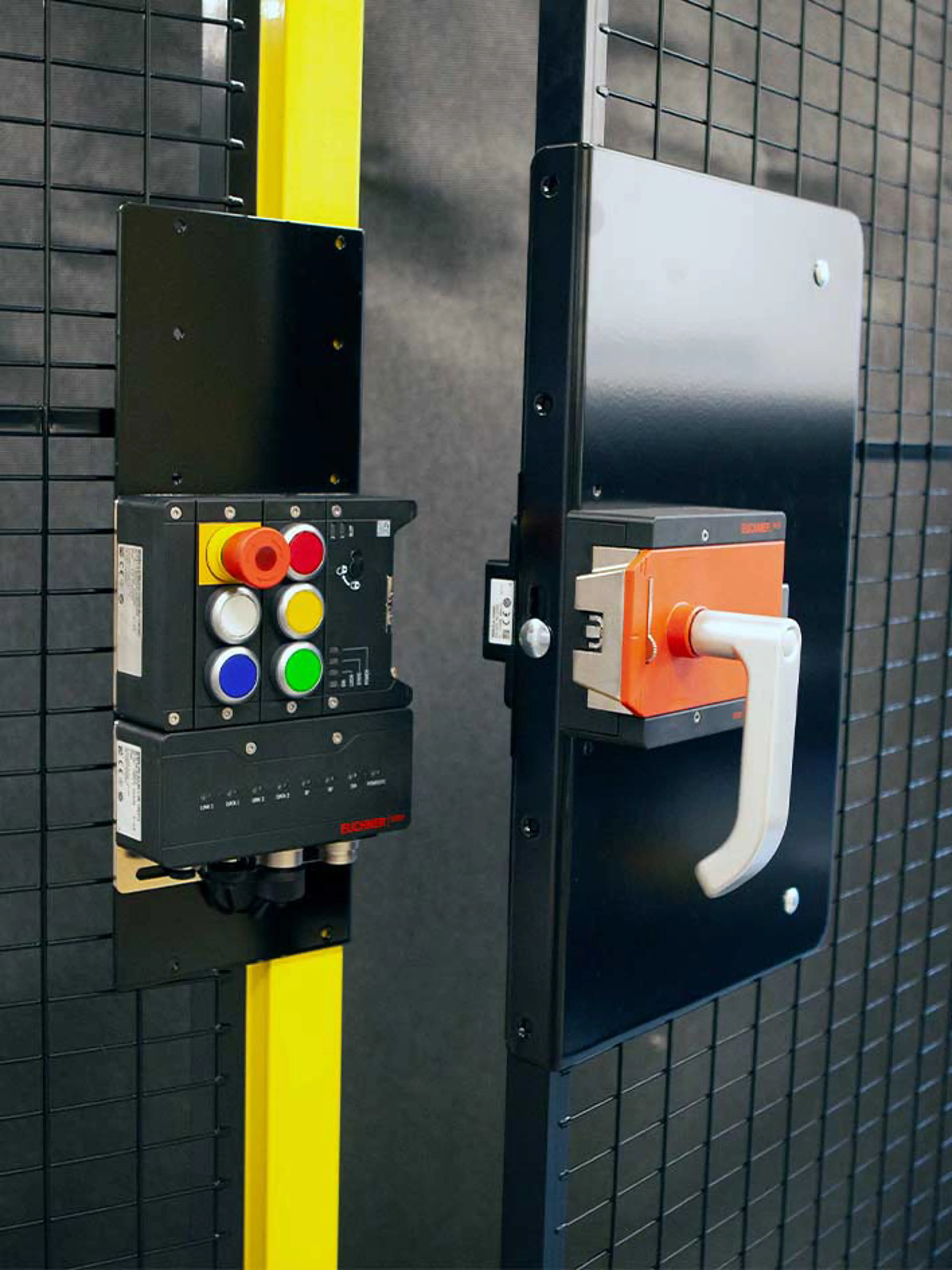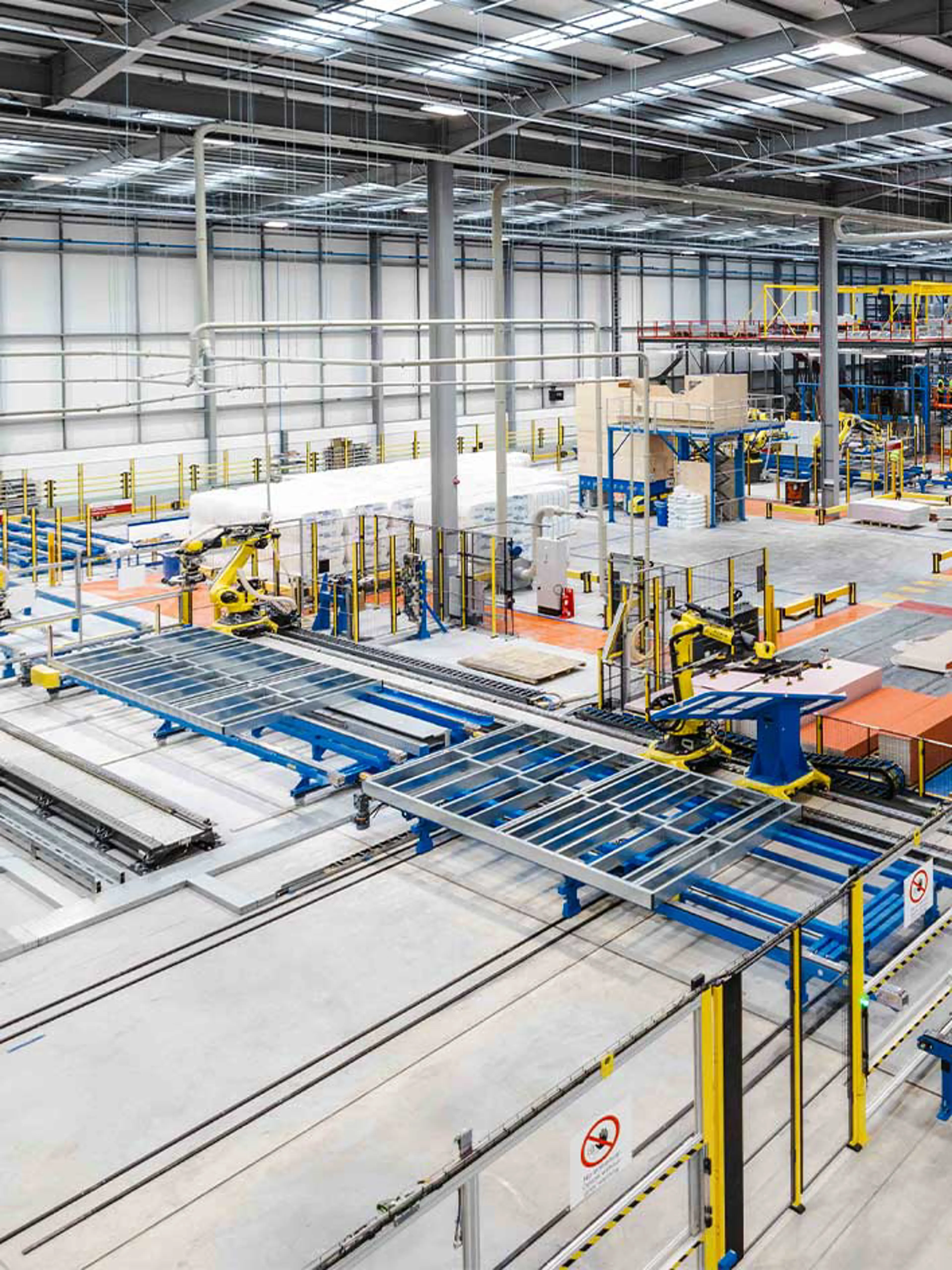Chapter 3.4
Guard locking
In this chapter we will explain why having the appropriate guard lock on machine guarding doors is essential to achieve optimal safety and ensure the safety of workers. If machinery needs time to stop after the opening of a guard, use electro-mechanical locks to prevent opening until any movement has stopped.
Interlocking functions for doors
Is access to the hazard zone required?
In this case yes, because pallets need to be brought in and out.
Upon a stop command, will the system stop instantly?
Yes. System stops instantly. In this case it is allowed for operators to open the door during operation. Provide for a switch without guard locking, for instance a non-contact safety switch.
Upon a stop command, will the system stop instantly?
No. It still needs some time to stop. In this case it must not be possible to open the door during operation. Provide for a a switch with guard locking.
Could a person stay inside the hazard zone and be overlooked by operators outside?
In this case yes. A guard locking switch with escape release must be used. This will allow a person to leave the hazard zone at any time.
Determine the Performance Level (PL) needed for the safety function.
The performance level required depends on the level of risk. Therefore this is decided during risk assessment.
Dealing with locking-in hazards
When doors and gates in the guard fencing around a machinery system are locked during operation, this results in a secondary risk which is easily overlooked.
This can pose significant risk to the person attending to a maintenance or fault issue within the machine who can easily be locked inside. That is bad enough but imagine a colleague outside would not notice them and restart the machine. This might result in a very dangerous situation. In such case, an escape release lock is necessary to allow the person inside the door to escape and stop the machine from continuing to run.
The escape release is triggered by hitting a button or pressing down a door handle on the inside of the door. It will then open, and the machine is stopped immediately. Of course, it must not be possible to use the escape release from outside the protected area, to prevent misuse. From outside a door lock can be released by resetting the safety circuit or by an emergency release, which is standard on most guard locking switches.
Emergency release is achieved by using a special tool to forcibly open the guard locking switch. Of course, this will also stop the machine immediately.

When should escape release locks be installed?
Escape release should be installed when several or all of the following conditions are present:
- The doors are equipped with guard locking switches
- The doors could close accidentally
- The hazard zone is big enough for one or more people to stay inside
- People in the hazard zone may be hidden from view, behind a large control cabinet, machinery etc.

Expert Sven Toftgård shares key insights in this webinar on choosing the right safety level for your lock. Learn how to make informed decisions to enhance safety and meet specific safety requirements.